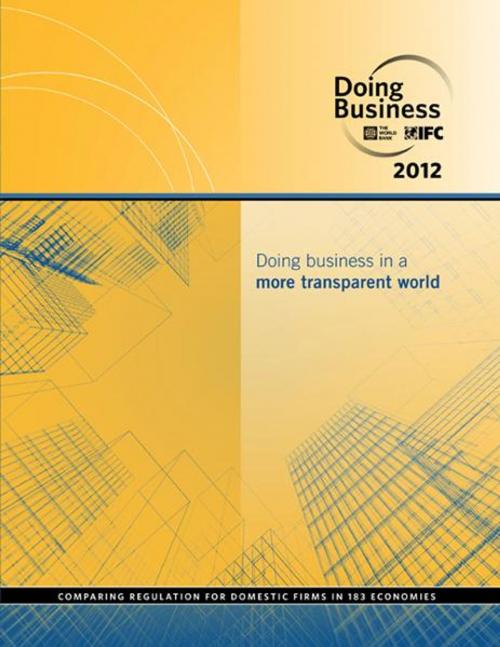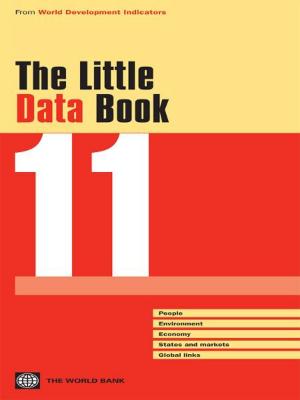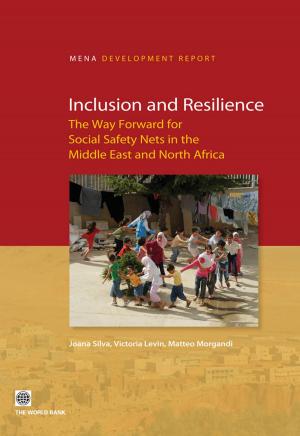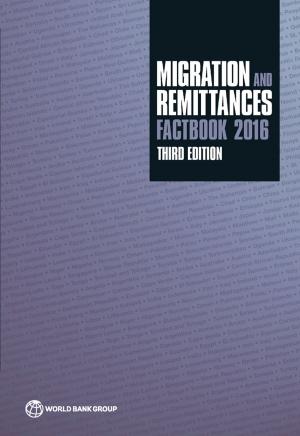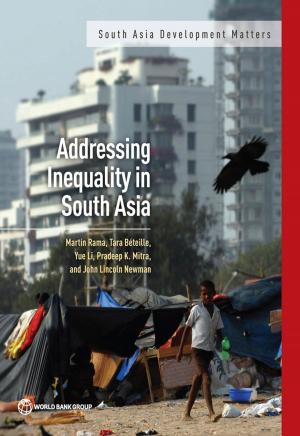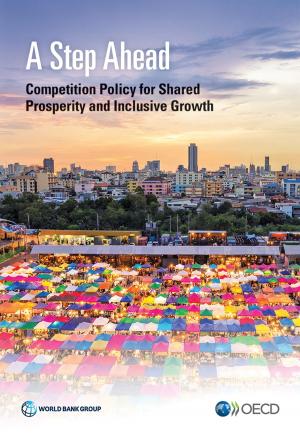Doing Business 2012: Doing Business in a More Transparent World
Business & Finance, Economics, Development & Growth, Entrepreneurship & Small Business, New Business Enterprises, Business Reference| Author: | World Bank | ISBN: | 9780821388341 |
| Publisher: | World Bank Publications | Publication: | October 18, 2011 |
| Imprint: | Language: | English |
| Author: | World Bank |
| ISBN: | 9780821388341 |
| Publisher: | World Bank Publications |
| Publication: | October 18, 2011 |
| Imprint: | |
| Language: | English |
Ninth in a series of annual reports comparing business regulations in 183 economies, Doing Business 2012 measures regulations affecting 11 areas of everyday business activity: ▪ starting a business ▪ dealing with construction permits ▪ employing workers ▪ registering property ▪ getting credit ▪ protecting investors ▪ paying taxes ▪ trading across borders ▪ enforcing contracts ▪ closing a business ▪ getting electricity The report updates all indicators as of June 1, 2011, ranks countries on their overall "ease of doing business", and analyzes reforms to business regulation-identifying which countries are strengthening their business environment the most. Doing Business 2012 includes a new set of indicators on the time, steps, and cost for a private business to get an electricity connection. The data on connection services can inform utilities, regulators and governments seeking to strengthen the performance of the electricity sector. Drawing on a now longer time series, this year's report introduces a measure to illustrate how the regulatory environment for business has changed in each economy since Doing Business 2006 was published in 2005. A new "distance to frontier" measure complements the aggregate ranking on the ease of doing business, which benchmarks each economy's current performance on the indicators against that of all other economies in the sample for a given year. A fundamental premise of Doing Business is that economic activity requires good rules that are transparent and accessible to all. Such regulations should be efficient, striking a balance between safeguarding some important aspects of the business environment and avoiding distortions that impose unreasonable costs on businesses. Where business regulation is burdensome and competition limited, success depends more on whom you know than on what you can do. But where regulations are relatively easy to comply with and accessible to all who need to use them, anyone with talent and a good idea should be able to start and grow a business in the formal sector. "The Doing Business report, which was started in 2003, has become one of the key ways in which the bank and other observers gauge business climate within developing countries..." -- The Financial Times "[Doing Business started] as a way to encourage countries to reduce obstacles to entrepreneurship. Developing countries compete to land a spot on the top 10 list of most-improving countries because it is seen as a way to get attention and investment." -- The Wall Street Journal "[Doing Business] has succeeded in putting the issue of business red tape on the international political agenda." -- The Economist
Ninth in a series of annual reports comparing business regulations in 183 economies, Doing Business 2012 measures regulations affecting 11 areas of everyday business activity: ▪ starting a business ▪ dealing with construction permits ▪ employing workers ▪ registering property ▪ getting credit ▪ protecting investors ▪ paying taxes ▪ trading across borders ▪ enforcing contracts ▪ closing a business ▪ getting electricity The report updates all indicators as of June 1, 2011, ranks countries on their overall "ease of doing business", and analyzes reforms to business regulation-identifying which countries are strengthening their business environment the most. Doing Business 2012 includes a new set of indicators on the time, steps, and cost for a private business to get an electricity connection. The data on connection services can inform utilities, regulators and governments seeking to strengthen the performance of the electricity sector. Drawing on a now longer time series, this year's report introduces a measure to illustrate how the regulatory environment for business has changed in each economy since Doing Business 2006 was published in 2005. A new "distance to frontier" measure complements the aggregate ranking on the ease of doing business, which benchmarks each economy's current performance on the indicators against that of all other economies in the sample for a given year. A fundamental premise of Doing Business is that economic activity requires good rules that are transparent and accessible to all. Such regulations should be efficient, striking a balance between safeguarding some important aspects of the business environment and avoiding distortions that impose unreasonable costs on businesses. Where business regulation is burdensome and competition limited, success depends more on whom you know than on what you can do. But where regulations are relatively easy to comply with and accessible to all who need to use them, anyone with talent and a good idea should be able to start and grow a business in the formal sector. "The Doing Business report, which was started in 2003, has become one of the key ways in which the bank and other observers gauge business climate within developing countries..." -- The Financial Times "[Doing Business started] as a way to encourage countries to reduce obstacles to entrepreneurship. Developing countries compete to land a spot on the top 10 list of most-improving countries because it is seen as a way to get attention and investment." -- The Wall Street Journal "[Doing Business] has succeeded in putting the issue of business red tape on the international political agenda." -- The Economist
